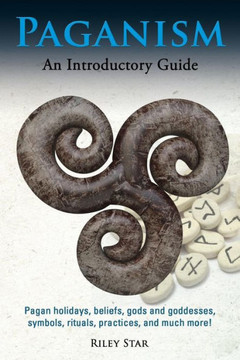
Easter : A Pagan Goddess, a Christian Holiday, and Their Contested History
Product Code:
9781961361164
ISBN13:
9781961361164
Condition:
New
$31.80

Easter : A Pagan Goddess, a Christian Holiday, and Their Contested History
$31.80
As the Easter season approaches each year, commonly heard questions ask: why does the festival not fall on the same date each year, and how do its name and symbols (notably eggs and bunnies) relate to the Christian story of Jesus' crucifixion and resurrection? A simple search of the internet will provide a bewildering volume of information and misinformation that claims to answer these questions. The issue has become something of culture war between traditional Christian interpretations and the views of people following alternative forms of spirituality and neopaganism. An often-heard argument is that Easter was originally named after a spring or dawn goddess, who was symbolised by the hare and the egg, and whose name, festival and symbols were later appropriated by the Christians. The purpose of this book is to explore the principal claims and counter claims that now surround the goddess Eostre (recorded once by the Venerable Bede in 725 AD) and the origins of the Christian paschal festival. It critically examines the substance and history of these ideas from their earliest sources to the present day. The book begins by exploring the origins of the Christian Paschal festival, with its roots in the Jewish Passover, and how this 'moveable feast' (based on the lunar calendar) became established in the late Roman Empire (including Britannia). The native British and Irish, like most European nations, based their terms for the festival on the Latin name Pascha - derived via Greek and Aramaic from the Hebrew name Pesach. However, among Anglo-Saxons the Paschal festival was known by the Old English name Eastron - ancestor of the modern name Easter - which according to Bede (672-735 AD) was taken from the name of a pagan goddess Eostre. The book then considers a possible parallel with the Old High German name Ostarun - ancestor of the German name Ostern - and whether this provides evidence of a more ancient Proto-Germanic or Indo-European goddess. This is followed by an examination of the claims and counter-claims made by various nationalist, occultist and neopagan groups regarding the festival's Germanic names, its common symbols and timing. Finally, the book explores a possible relationship between Eostre and both a group of Roman altars from Germany dedicated to the Matronae Austriahenae and a unique seventh-century timber structure at Yeavering in Northumberland, which may provide the first evidence to corroborate Bede's Anglo-Saxon calendar.
| Author: Richard Sermon |
| Publisher: Uppsala Books |
| Publication Date: Sep 01, 2024 |
| Number of Pages: NA pages |
| Language: English |
| Binding: Hardcover |
| ISBN-10: 1961361167 |
| ISBN-13: 9781961361164 |





